All Stories
-
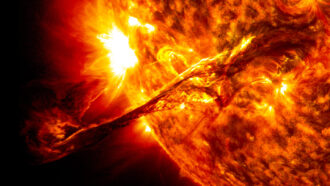 Space
SpaceScientists Say: Solar Cycle
This roughly 11-year cycle in the sun’s activity can affect space weather that messes with Earthly technology.
-
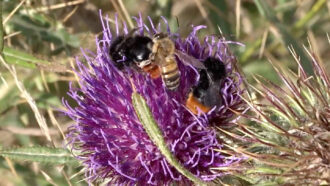 Animals
AnimalsPollen-seeking honeybees sometimes turn to theft
Observations of honeybee pollen theft from bumblebees suggest it may be a crime of convenience, based on ease of access to the prized food.
-
 Animals
AnimalsCats play fetch — but only when they feel like it
Most cats that play fetch pick up the behavior on their own, a study finds. And those felines tend to dictate when fetching sessions begin and end.
By Meghan Rosen -
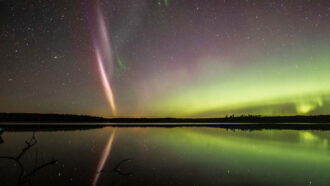 Earth
EarthThe weird sky glow called STEVE is really confusing scientists
Researchers are trying to figure out the recipe of atmospheric conditions that creates this aurora-like light show.
-
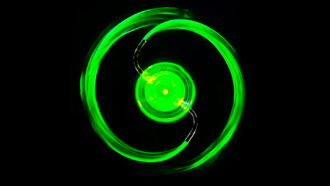 Physics
PhysicsPhysics explains what happens when a lawn sprinkler sucks in water
Experiments with a floating sprinkler revealed the surprisingly complex physics behind a simple question.
-
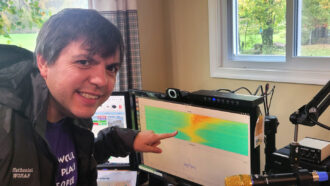 Space
SpaceThis space physicist uses radios to study eclipses
Nathaniel Frissell uses radio data to study how eclipses affect a layer of the atmosphere called the ionosphere.
-
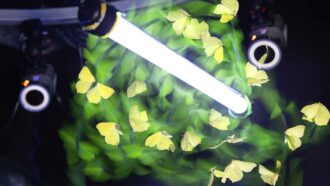 Animals
AnimalsWhich way is up? Insects may lose track near artificial lights
Flying insects may use light to figure out where the sky is. But artificial lights can send them veering off course, high-speed video suggests.
-
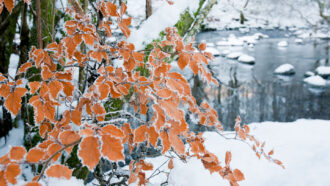 Plants
PlantsScientists Say: Marcescence
Autumn turns to winter, yet some trees' dead leaves keep hanging on.
-
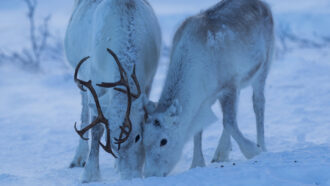 Animals
AnimalsReindeer can chew food in their sleep
Brain waves and behaviors suggest that reindeer can doze while chewing.
-
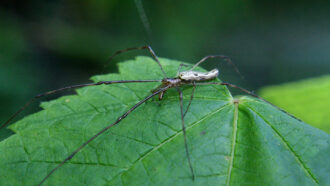 Animals
AnimalsSpiders that fall into water use reflected light to find land
When elongate stilt spiders fall into water, they head for areas that don’t reflect light, studies show. This cue appears to signal dry land.
-
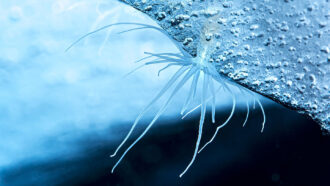 Ecosystems
EcosystemsA weird upside-down world lurks beneath Antarctica’s ice
A vast swath of ocean surrounds Antarctica, hidden under the ice. Here, strange creatures burrow into the dark underbelly of a floating glacier.
By Douglas Fox -
 Physics
PhysicsPhysics explains why poured water burbles the way it does
The loudness of falling water depends on the height of the pour and the thickness of the stream.